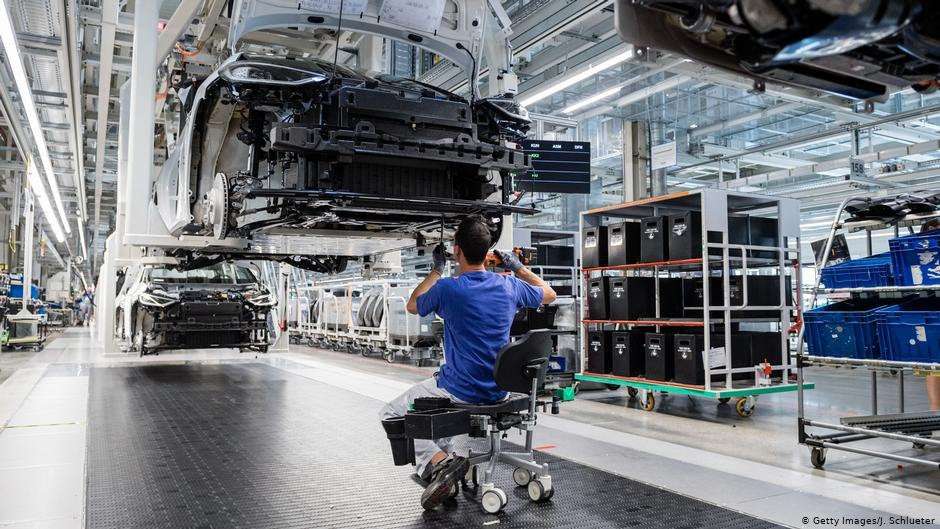Germany's largest trade union IG Metall proposed a four-day working week ahead of the next round of collective bargaining talks due to begin next year, reported German media on Saturday.
The shorter week would be "the answer to structural changes in sectors such as the automotive industry," said union chair Jörg Hoffman to German national newspaper Süddeutsche Zeitung.
"With this, jobs in the industry can be kept instead of being written off," added Hoffman.
Germany's automotive industry — one of the mainstays of the country's economy —is undergoing a major transformation to e-mobility, spurred by concerns over climate change as well as increasing automation and digitalization. The sector was also hit by the pandemic-induced financial crisis, although it is showing signs of recovery.
IG Metall, which represents workers from major carmakers such as Audi, BMW and Porsche, is Europe's largest industrial union. Analysts consider it a major national trendsetter in bargaining.
Read more: How coronavirus pandemic has spurred change in Germany
Watch video 06:48 Share Car outfitter Zender produces protective masks Send Facebook google+ Whatsapp Tumblr linkedin stumble Digg reddit Newsvine Permalink https://p.dw.com/p/3ek8w Making masks instead of car parts. Zender reinvents itself
Firms such as Daimler, ZF and Bosch all made agreements this summer to reduce working hours. These companies were forging the way for all businesses in the metalwork and electronics industries, said Hoffman.
He proposed compensatory wage adjustments for employees.
It was in companies' interests to shorten working hours instead of cutting staff numbers — it ensured specialists were retained and saved on redundancy costs, said Hoffman.
Read more: German industry demands subsidies for fossil fuel cars
Germany's automotive industry sustains around 830,000 people and contributes around 5% of the country's Gross Domestic Product (GDP).
Earlier this year, a research agency funded by the German government suggested that in a worst-case scenario, more than 400,000 jobs in the German car industry could be gone by 2030.
In the upcoming union talks, Hoffman said IG Metall would call for a wage increase for workers, despite the recession.

vraalapa on August 16th, 2020 at 05:35 UTC »
We've been working 80% with a 4% cut to our salary for some time now. Funny thing is that production and efficiency has gone up.
Edit: we get 96% of our original salary, for working 80% of a 40 hour week. Which means basically 4 days weeks.
Edit 2: Some info about short-time work allowance in Sweden. In English.
dpcaxx on August 16th, 2020 at 02:43 UTC »
Skwissgaaar on August 16th, 2020 at 02:11 UTC »
They're calling for a wage increase (probably hourly wage increase) as well as a 4 day work week. They would probably get paid less, and they would work less. I would imagine the hourly wage increase would help offset the impact of the pay cut. There will probably be a pay cut, but seeing as how these are metal workers, they're most likely going to still get paid enough to live comfortably. Money isn't everything.